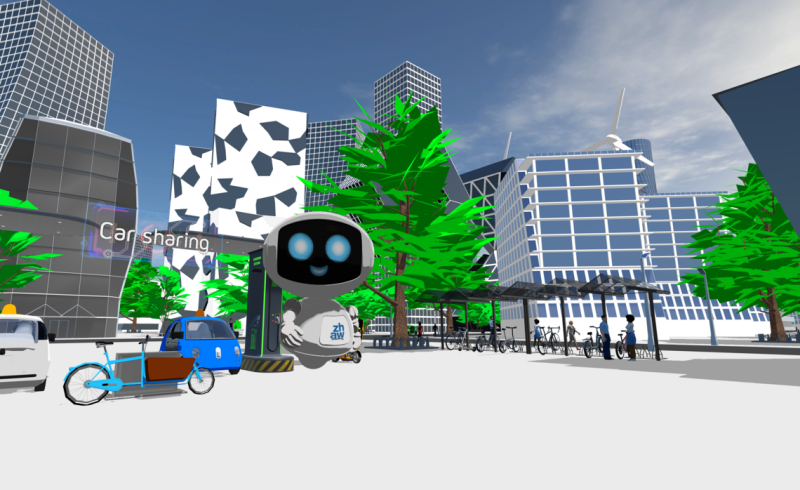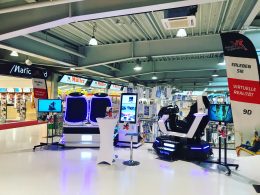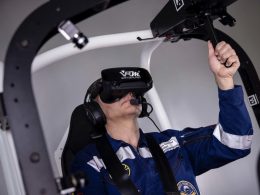The ZHAW project Experience Smart Mobility enables virtual journeys through the city of the future. The thesis behind it: People who can try out smart mobility solutions for themselves are more likely to use them in the future.
Smart mobility is also part of a smart city. But what does that mean exactly? New mobility solutions should not only meet the increasing demand for transport, but also be as emission-free and sustainable as possible. There are already examples of this: the growing range of sharing vehicles promotes a change in mentality from owning to using. Electric means of transport can be charged with renewable electricity. And so-called Mobility as a Service (MaaS) concepts network different modes of transport to get from A to B efficiently. "There is no shortage of creative solutions or innovative ideas for a sustainable change in mobility; but what prevails is less a question of technological nature and more a question of habits," explains ZHAW researcher Onur Yildirim of the Institute for Sustainable Development. In order to open them up to a new mobility behaviour, people should be able to experience the new possibilities and their advantages for themselves.
Experience the mobility of tomorrow
ZHAW researchers Mirjam West and Onur Yildirim have launched the project Experience Smart Mobility. In it, they use virtual reality (VR) to offer an interactive approach to the mobility of tomorrow. Anyone who puts on the VR glasses can move through the city of the future for about ten minutes - including rides in a BICAR or autonomous taxi. The virtual experience begins at a Hyperloop station, from where you have to make your way home by various means of transport. To make sure you don't get lost, the robot lady Ginny accompanies you. She provides background information and explanations about the individual mobility solutions. Nevertheless, it sometimes takes some effort to move freely in the virtual world. But don't worry: if you take a virtual seat in the self-driving car, you'll be sitting in a real chair in the lab.
Thought-provoking
"Studies show that the perception of facts and the evaluation of these can be influenced by experiencing scenarios through VR," says Mirjam West. In a laboratory study with test persons, the researchers investigated whether their VR experience could increase the acceptance of future mobility solutions. A majority of the interviewed subjects named concrete advantages, which had previously been visualised in the experience and conveyed by the background information. The factors of comfort, costs and time, for example, were seen by the subjects as advantages in the use of autonomous vehicles. A majority was more open to sharing models after the VR experience. "Experiencing future mobility solutions by means of VR made the test persons think," Mirjam West is convinced. "To what extent this will affect their future behaviour in mobility decisions remains open and offers room for further research projects."
Source: zhaw









